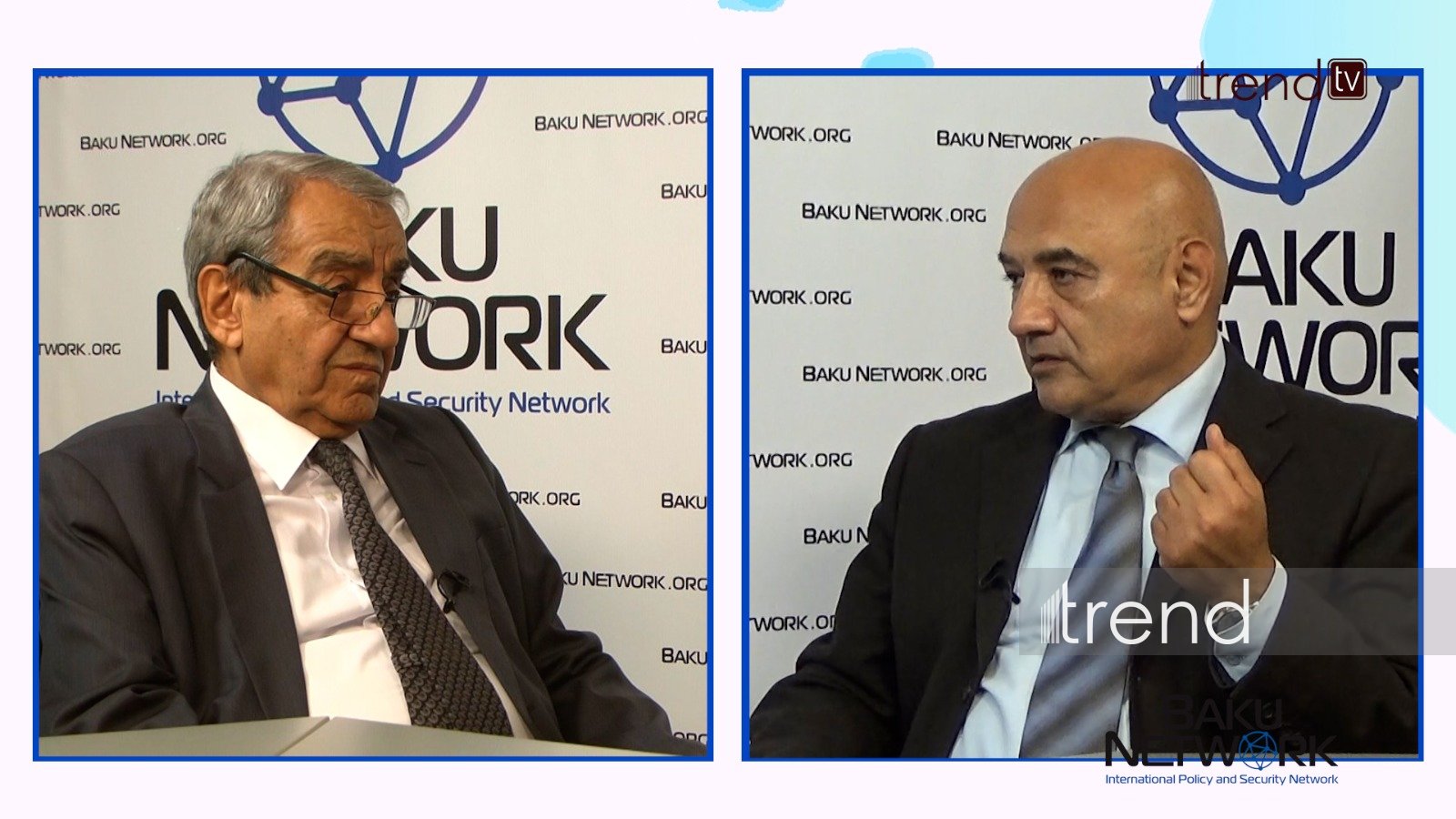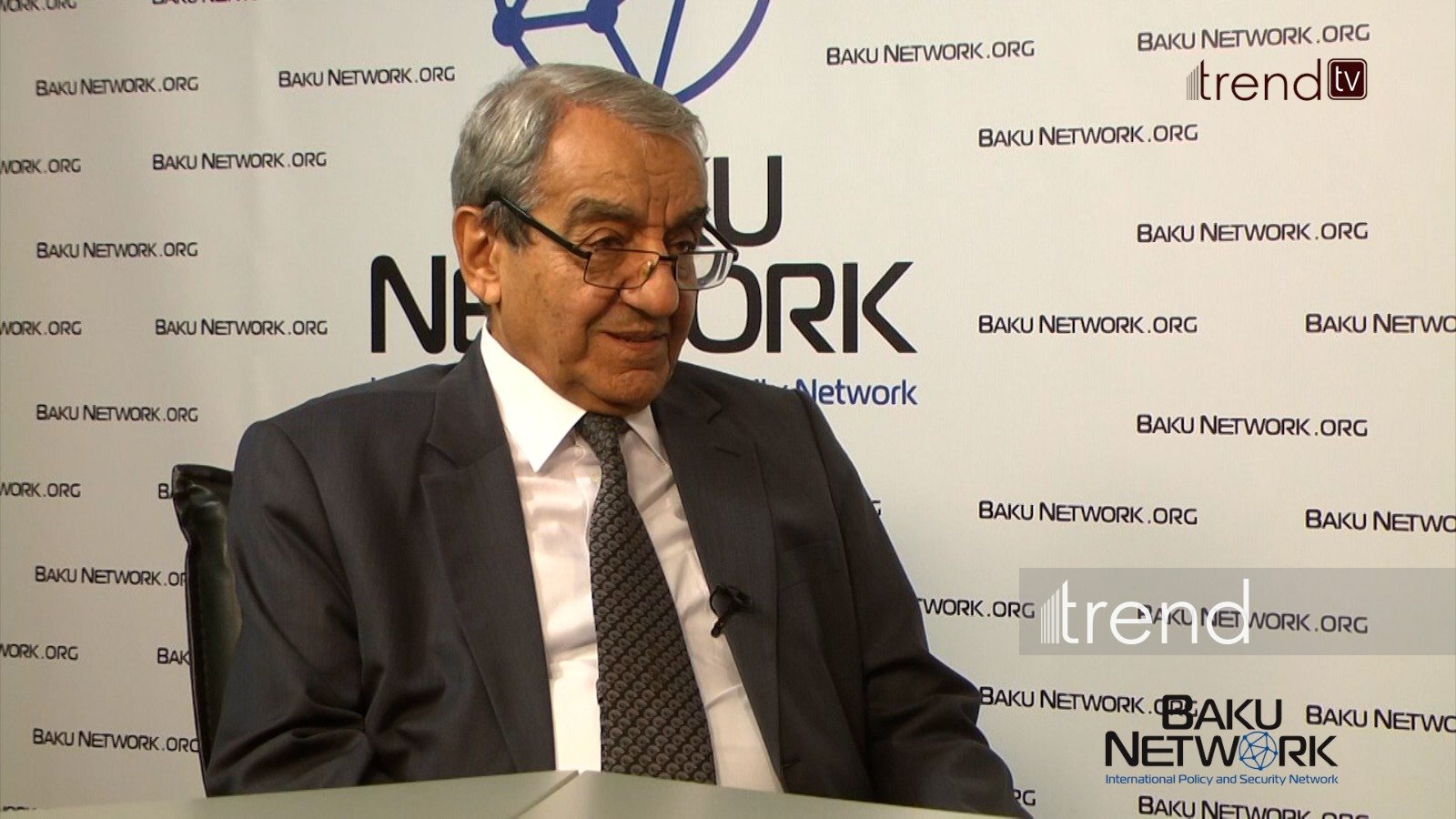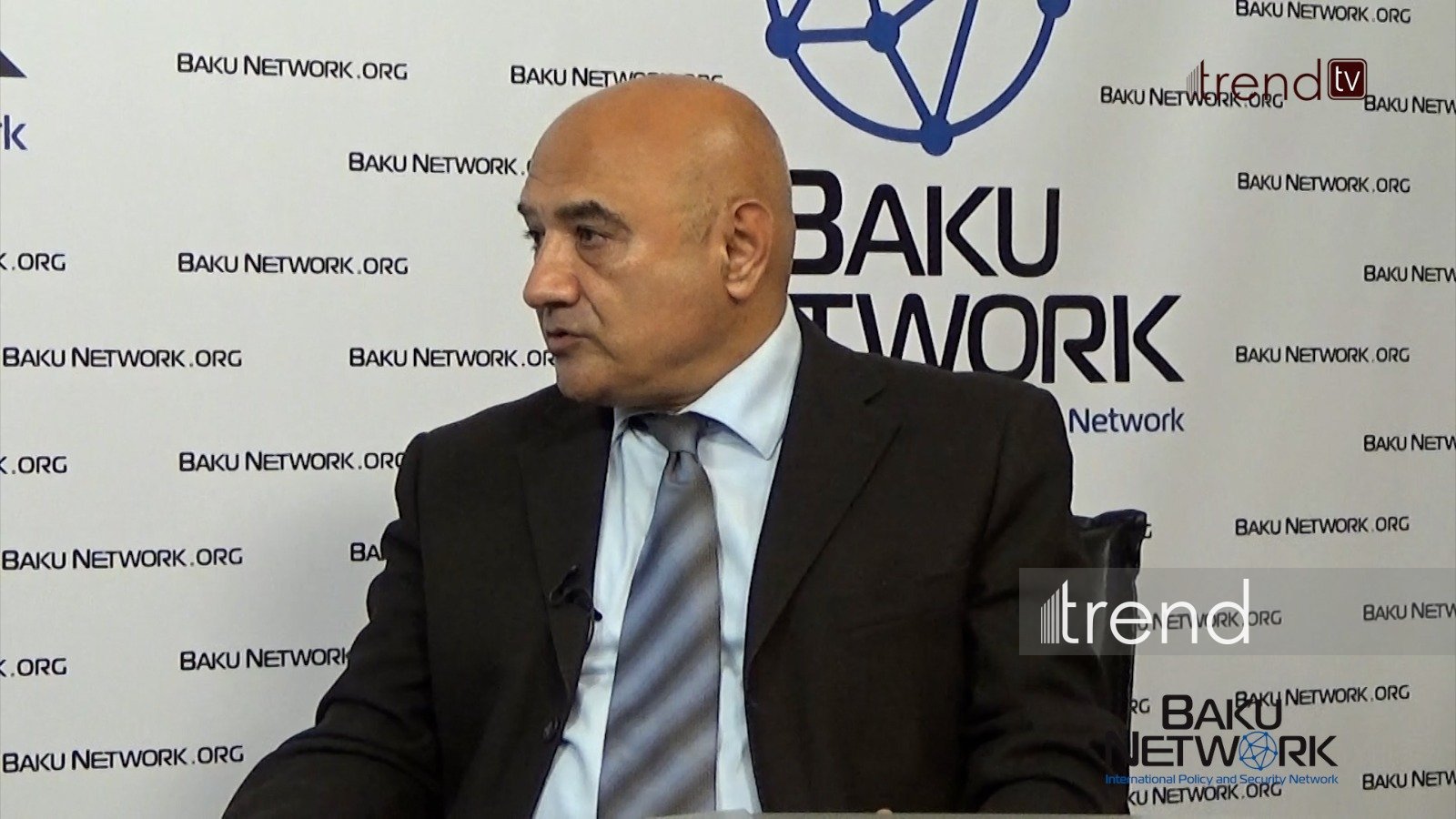BAKU, Azerbaijan, November 25. The Baku Network expert platform rolled out the next part of the analytical video series "Dialogue with Tofig Abbasov", Trend reports.
This time, the project focused on the prospects of peaceful settlement and restoration of normal relations between Azerbaijan and Armenia.
The guest of the program was Doctor of Physical and Mathematical Sciences, Professor, and Full Member of the European Academy Karim Allahverdiyev is a scholar known not only for his fundamental research in laser physics, but also for his ability to analyze social and geopolitical processes rationally, without emotions or political distortions.
At the center of the discussion are the challenges that arise in the normalization of relations after the end of the war. Allahverdiyev emphasized that many of these obstacles are artificially created and fueled by nationalist political groups, primarily Dashnak structures. It is they who exert pressure not only on Armenia’s domestic politics but also on the Armenian diaspora worldwide, maintaining an atmosphere of confrontation.
“The Dashnak party, although not formally in power, retains influence everywhere Armenians live. The methods are standard: intimidation, persuasion, buying loyalty. This has long gone beyond politics,” he said.
Speaking about the prospects for a peaceful course, Allahverdiyev noted that Armenia’s ruling Civil Contract Party is trying to reduce the level of tension.
A separate part of the discussion focused on comparing levels of nationalism in regional countries. According to Allahverdiyev’s observations, nationalist attitudes in Armenia run significantly deeper than in neighboring states.
This is not only an ideology - it's a model of behavior reinforced over decades,” he said.
Despite the complexity of the political context, Allahverdiyev expressed confidence that the core of normalization will be direct human dialogue - not diplomatic formulas, but ordinary human contact, professional relations, and joint projects.
He also shared personal experience communicating with Armenian colleagues at international conferences.
“In the West, I didn't feel nationalism. They openly said that the conflict benefits no one. But in Armenia, people are afraid to say this aloud,” the professor pointed out.
Concluding the conversation, Allahverdiyev expressed confidence that the normalization process is inevitable.
“Normal relations will certainly be restored. We are already moving in this direction. The main thing is not to allow nationalists to dictate the scenarios of the future,” he explained.
The host of the program, Tofig Abbasov, supported this assessment, noting that the region is entering a phase in which rationality and direct human interaction will define a new architecture of peace.












